Before acquiring a stun gun for self-defense, understand state laws regarding possession, use, and training requirements. For women, consider age restrictions, power output limits, and safety training mandates. Ensure the stun gun is reliable, easy to use, discreet, and from reputable manufacturers with warranties. Training is crucial for safe and effective use, as proper deployment and de-escalation tactics are vital for personal security.
In today’s world, understanding state laws regarding civilian taser ownership is crucial for personal safety. This guide explores the requirements for acquiring a stun gun, focusing on eligibility criteria, age restrictions, and licensing needs. We’ll delve into legal use cases for self-defense, offering insights on choosing the best self-defense stun gun for women while emphasizing safety precautions and training. Navigate state regulations and empower yourself with knowledge to ensure responsible ownership.
- Understanding State Laws on Stun Guns
- Eligibility Criteria for Civilian Ownership
- Age Restrictions and Licensing Requirements
- Legal Use Cases for Self-Defense
- Purchasing a Stun Gun: What to Consider
- Safety Precautions and Training Needs
Understanding State Laws on Stun Guns
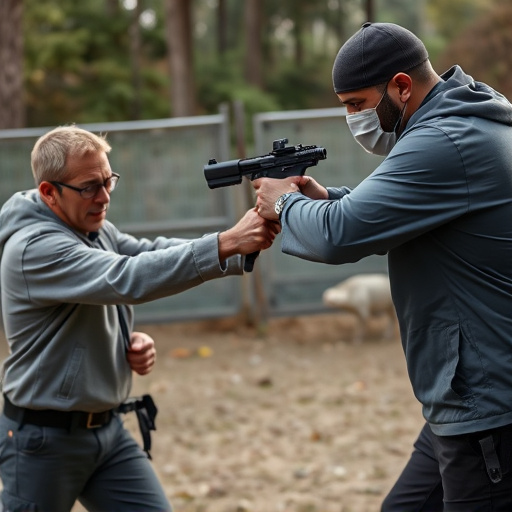
Understanding state laws on stun guns, or what many refer to as the best self-defense stun gun for women, is crucial before considering civilian ownership. Each U.S. state has its own set of regulations governing the possession and use of these portable electronic control devices (ECDs). Some states allow open carry, while others mandate a permit or require registration. Certain laws may also restrict where and how you can use your stun gun, such as in schools or public gatherings.
Knowing and adhering to these local laws is essential for responsible ownership. For women considering self-defense options, understanding these regulations can help ensure the device’s legality and effectiveness as a personal safety tool. Always consult official resources or legal professionals for up-to-date information tailored to your state.
Eligibility Criteria for Civilian Ownership
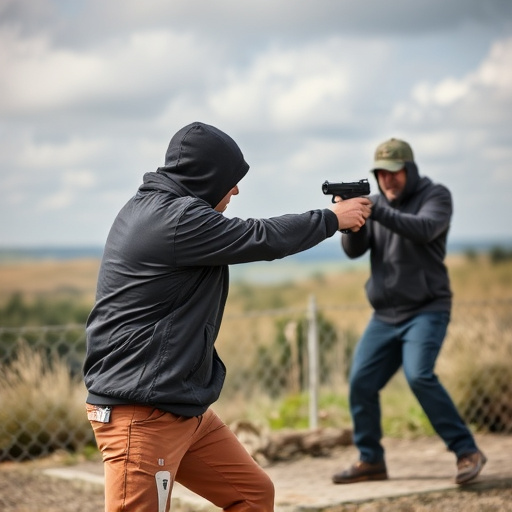
In many states, civilian ownership of a taser is permitted but comes with strict eligibility criteria designed to ensure responsible use. Potential owners often need to meet certain age requirements, pass a background check, and demonstrate proficiency in safety handling. Some states also mandate specific training or certification for stun gun usage. These measures are crucial in promoting safe self-defense practices, especially considering the powerful nature of these devices.
For women seeking effective self-defense options, a taser can be a valuable tool due to its non-lethal capabilities and quick deployment. When evaluating different models, it’s essential to consider factors like ease of use, weight, and range. The “best” stun gun for women should offer reliability, comfort during use, and the latest safety features while adhering to local legal requirements.
Age Restrictions and Licensing Requirements
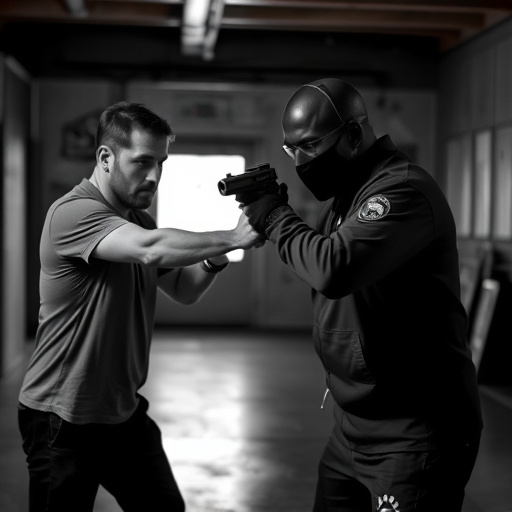
In many states, civilian ownership of a stun gun, often referred to as a Taser, is regulated by strict age and licensing requirements. These regulations are designed to ensure responsible use and prevent misuse of such powerful self-defense tools. Typically, individuals must be at least 18 years old to legally purchase and possess a stun gun. Some states even have sub-categories within this age restriction, allowing only adults over 21 or 25 to acquire these devices.
Licensing requirements vary widely across states. Some jurisdictions do not mandate any specific license for stun gun ownership, while others may require a concealed carry permit (CCW) or similar authorization. For women seeking the best self-defense stun gun, understanding and adhering to these local laws are essential. Additionally, some states have restrictions on the power output allowed in civilian-use Tasers, further emphasizing the need for responsible ownership and handling.
Legal Use Cases for Self-Defense
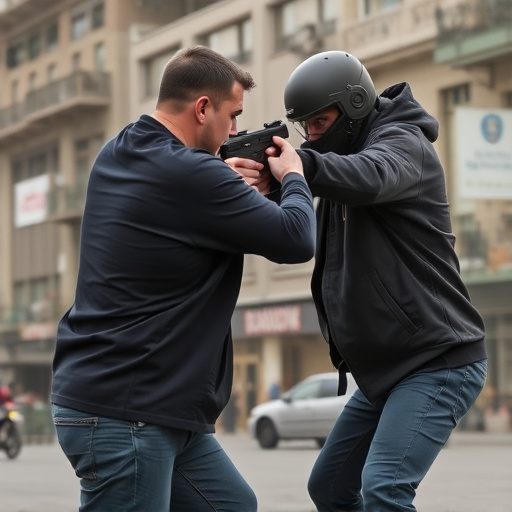
In many states, the legal use of a stun gun or Taser for self-defense is allowed under specific circumstances, offering a viable option for personal protection, especially for women looking for non-lethal means to deter potential threats. The concept of “stand your ground” laws varies across jurisdictions, but generally, individuals have the right to protect themselves if they perceive an imminent danger. A stun gun can be a powerful tool in such situations, providing a quick and effective way to incapacitate an attacker without causing permanent harm.
For women considering self-defense options, a best self-defense stun gun is a portable and discreet way to enhance personal safety. These devices are designed with ease of use in mind, often featuring simple triggers and powerful electric charges that can disrupt an assailant’s mobility, giving the user valuable time to escape or seek help. It’s crucial for owners to understand local laws regarding stun gun usage, as some states have specific requirements for permit applications, minimum age restrictions, and allowable places for carry.
Purchasing a Stun Gun: What to Consider
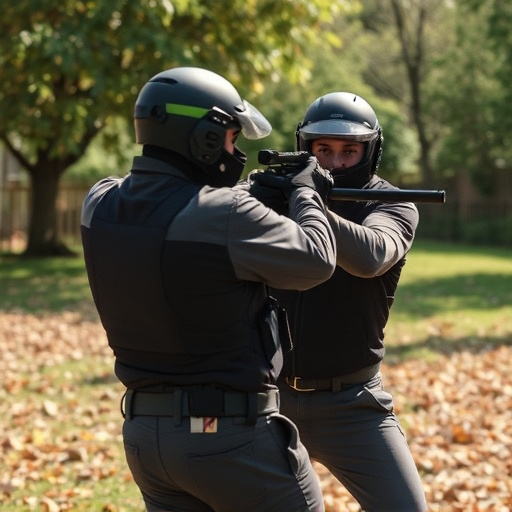
When considering purchasing a stun gun, especially as a woman looking into the best self-defense options, several factors come into play. It’s essential to choose a device that offers reliable protection without compromising ease of use. One key aspect is understanding your state’s laws regarding stun guns; ownership requirements vary widely, so ensuring compliance is crucial before making a purchase.
Additionally, look for stun guns designed with comfort and discretion in mind. A compact, lightweight design can be more easily concealed, providing peace of mind without drawing excessive attention. High-quality devices often incorporate features like rubberized grips for better control and powerful electrical outputs to ensure effectiveness during an encounter. Always opt for products from reputable manufacturers who offer warranties, ensuring you have support if any issues arise.
Safety Precautions and Training Needs

When considering civilian Taser ownership, especially for self-defense, it’s crucial to understand the safety precautions and training requirements mandated by state laws. These regulations are in place to ensure responsible use and minimize potential risks associated with stun guns. The best self-defense stun gun for women (or anyone) is not just about power; it’s about effectiveness and safety.
Training becomes even more critical as Tasers can cause significant physical harm if misused. Many states require individuals to complete a certified training program before purchasing a Taser. This training covers safe handling, deployment techniques, and legal implications of using a stun gun. It’s essential for users to learn about range safety, de-escalation tactics, and proper body targeting to ensure their personal safety and that of others around them.
When considering civilian taser ownership, understanding state laws is paramount. Each jurisdiction has unique eligibility criteria, age restrictions, and licensing requirements. For those seeking the best self-defense stun gun for women, navigating these regulations is essential to ensure legal compliance. Remember that proper training and safety precautions are equally vital, allowing you to make informed decisions regarding personal protection while adhering to local laws.
